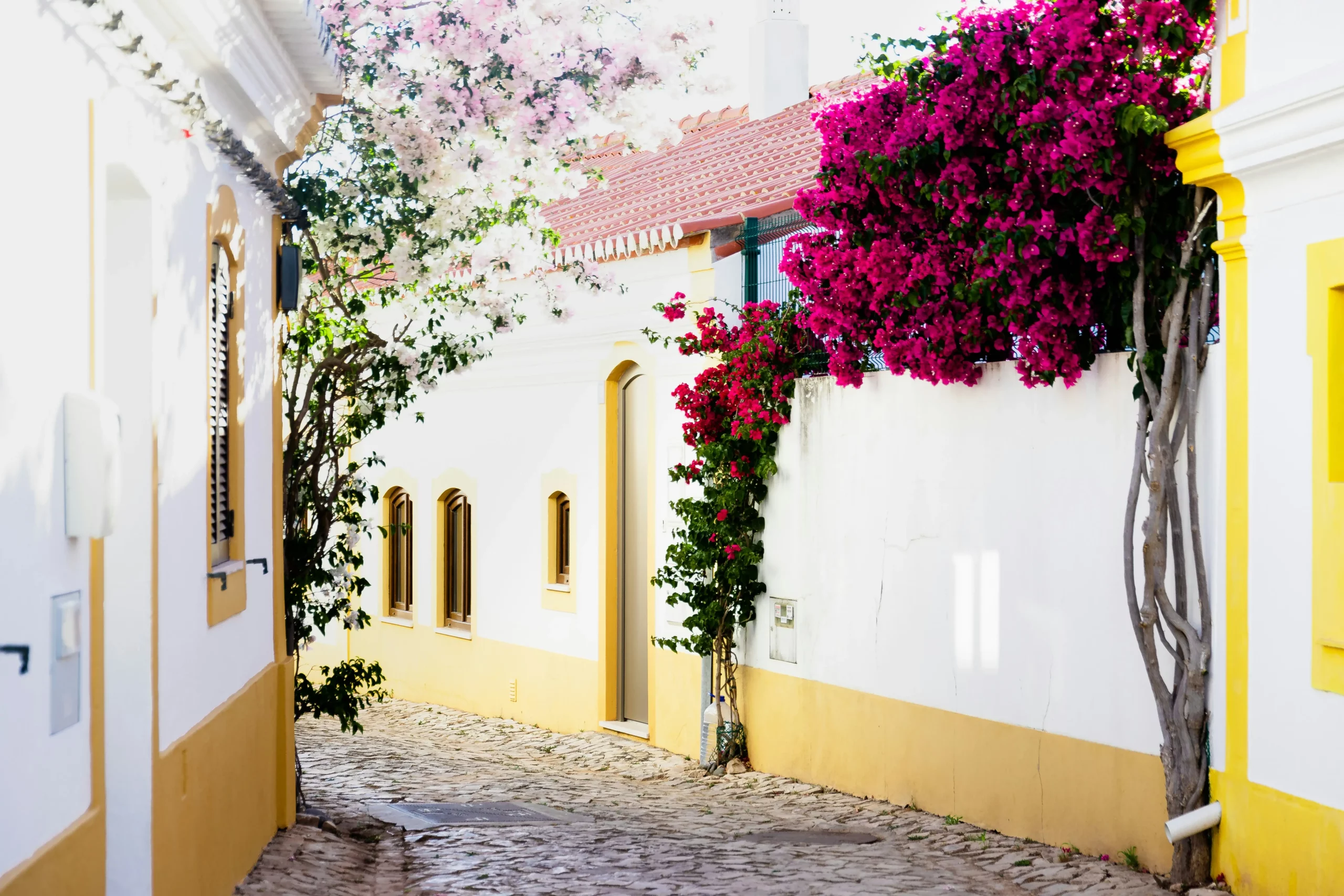Introduction
Are you an investor dreaming of buying a house in Portugal? Whether for a vacation home, an investment, or permanent residence, Portugal offers stunning properties, attractive tax benefits, and the opportunity to obtain a Golden Visa. This guide simplifies the necessary steps, covering legal aspects, financing options, and the pathway to achieving your dream.
Step 1: Understand the Portuguese Real Estate Market
The Portuguese real estate market is diverse, featuring beachfront villas in the Algarve, city apartments in Lisbon or Porto, and more. Choose a region that suits your lifestyle, investment potential, and budget.
Tip: Find a local real estate agent who speaks Portuguese, French or English like our team and they’ll help you navigate the market, identify suitable properties, and negotiate with the local sellers.

Step 2: Secure Financing
International Investors have multiple financing options for purchasing property in Portugal. Banks in Portugal offer mortgages to non-residents, typically covering 60-70% of the property’s value. Interest rates are competitive, but you’ll need a steady income and proof of creditworthiness. Other Mortgages: alternatively, you can explore mortgage options in your country and transfer funds to Portugal.
Required Documents:
- Passport or ID card.
- Proof of income.
- Bank statements.
- Portuguese Tax Identification Number (NIF).
Step 3: Obtain a Portuguese Tax Identification Number (NIF)
The NIF is essential for any financial transaction in Portugal. You can obtain it through the Portuguese Tax Office or you can hire our team to help you during this process or any other necessary administrative process of buying a property in Portugal.
Step 4: Reserve the Property and Sign the Preliminary Contract (CPCV)
Once you’ve chosen your property, you’ll need to sign a Promissory Contract of Sale and Purchase (CPCV). This contract secures the transaction until the final deed is signed and requires a deposit of 10–30% of the property’s price.
Step 5: Finalize the Purchase
The final step is signing the Notarial Deed (Escritura). At this stage, you’ll pay the remaining balance along with taxes and associated fees. Once signed, the property officially belongs to you.
Step 6: Maximize Your Investment with the Golden Visa
The Portuguese Golden Visa can be game-changer for any International Investor. These are the benefits that you can unlock with this program:
- Residency in Portugal: Live, work, and study in Portugal with full residency rights.
- Visa-Free Travel: Enjoy unrestricted access to 27 countries in the Schengen Zone.
- Path to Citizenship: After just five years, you may become eligible for Portuguese citizenship, granting access to one of the world’s most powerful passports.
Our team can guide you through every step of the qualification process, ensuring a smooth and efficient experience. Read more about our service.
Why Investing in Portugal is a Smart Choice?
Investing in Portuguese real estate combines lifestyle benefits with financial advantages. Key perks include tax savings through the Non-Habitual Residency (NHR) scheme, a lower cost of living compared to other countries in Europe, and a relaxed lifestyle with over 300 days of sunshine.

Final Tips for International Investors:
- Work with experts like Vasco Invest for smooth cross-border transactions.
- Account for additional costs (6–8% of the property price).
- Take advantage of the long-term benefits of the Portuguese Golden Visa, including residency, Schengen travel, and potential European citizenship.
Start your investment journey today—contact us now!



